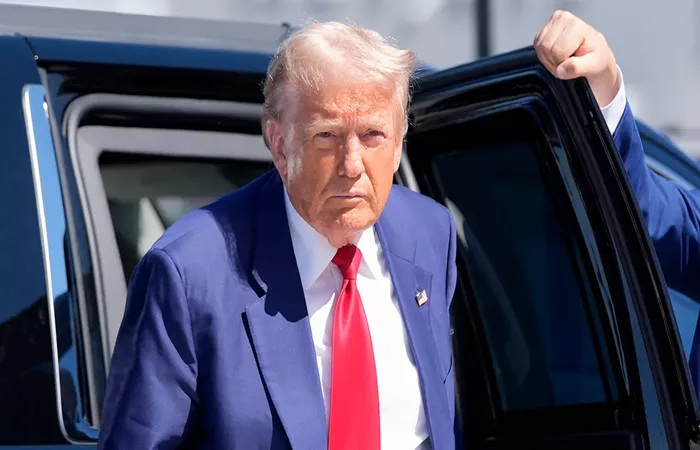Beijing, June 10– The U.S. Northern Command announced on June 9 that approximately 700 Marines had been mobilized to “seamlessly integrate” with National Guard forces already deployed in Los Angeles, California, to protect federal facilities and personnel. The move came as California filed a lawsuit challenging the constitutionality of President Trump’s deployment orders, with both sides trading accusations of inciting civil unrest.
Marines Deployment Marks Escalation of Force
In a statement, the Northern Command said the Marines from the 2nd Battalion, 7th Marine Regiment, based in San Bernardino County east of Los Angeles, would reinforce security efforts. CNN noted that deploying a full Marine battalion signals a significant escalation of Trump’s strategy to use military displays against protesters. Defense sources told NBC the unit would arrive in Los Angeles within 24 hours.
California Governor Gavin Newsom’s office called the Marine deployment “unprecedented” and “unnecessary,” emphasizing that the state had not requested federal military intervention. This followed an earlier announcement on June 8 that 500 Marines south of Los Angeles were on standby for deployment.
California’s Legal Challenge to Federal Authority
The California government filed a lawsuit on June 9 seeking to invalidate Trump’s June 7 executive memo and the Pentagon’s deployment of National Guard troops. The complaint, targeting Trump and Defense Secretary Hagel Seth, alleges the orders violated the U.S. Constitution’s 10th Amendment by federalizing California’s National Guard without the governor’s consent.
Attorney General Rob Bonta accused Trump of “manufacturing chaos for political gain,” calling the federalization an “abuse of presidential power” that undermines state sovereignty. The lawsuit highlights that Trump’s bypass of the governor is “historically unprecedented,” with Newsom demanding command of the “unlawfully deployed” Guard forces be returned to the state.
Legal experts noted this marks the first time a president has mobilized state National Guard troops without gubernatorial approval since 1965, raising constitutional questions about federal overreach.
Mutual Accusations of Inciting Civil Unrest
Trump’s Threats and Accusations:
The president threatened to arrest Newsom, calling him “incompetent” and blaming him for failing to control protests. Speaking at the White House, Trump labeled protesters “professional agitators” and “insurrectionists,” warning that allowing leaders like Newsom to act could lead to civil war.
Newsom’s Rebuttal:
Newsom condemned Trump’s threats as a “crossing of an unthinkable line,” highlighting the president’s public call to arrest a sitting governor. He accused Trump of behaving like a “dictator” and intentionally provoking civil strife to advance political interests, stating, “He didn’t come to restore peace; he came to start a war on American streets.”
Broader Unrest and National Implications
The conflict intensified as protests continued in Los Angeles, with clashes between demonstrators and federal forces on June 8. Border Affairs Director Tom Homan vowed to continue cracking down on illegal immigration in Southern California, threatening arrest for anyone obstructing operations—including Newsom and Los Angeles Mayor Karen Bass.
Tensions spread to other U.S. cities, with protests being planned in Atlanta, Boston, Chicago, New York, and Seattle. The standoff underscores deepening federal-state divisions over immigration policy, executive power, and the role of the military in domestic affairs.
Constitutional and Political Stakes
The lawsuit and military deployment raise critical questions about the balance of federal and state powers, particularly under the Posse Comitatus Act and National Guard regulations. While Trump asserts authority to address public order threats, California and legal scholars argue the deployment lacks legal basis and sets a dangerous precedent for presidential overreach.
As the legal battle progresses and protests escalate, the crisis tests the limits of executive power and the resilience of U.S. federalism, with national implications for how future administrations handle domestic unrest and intergovernmental conflict.
Related topics:

